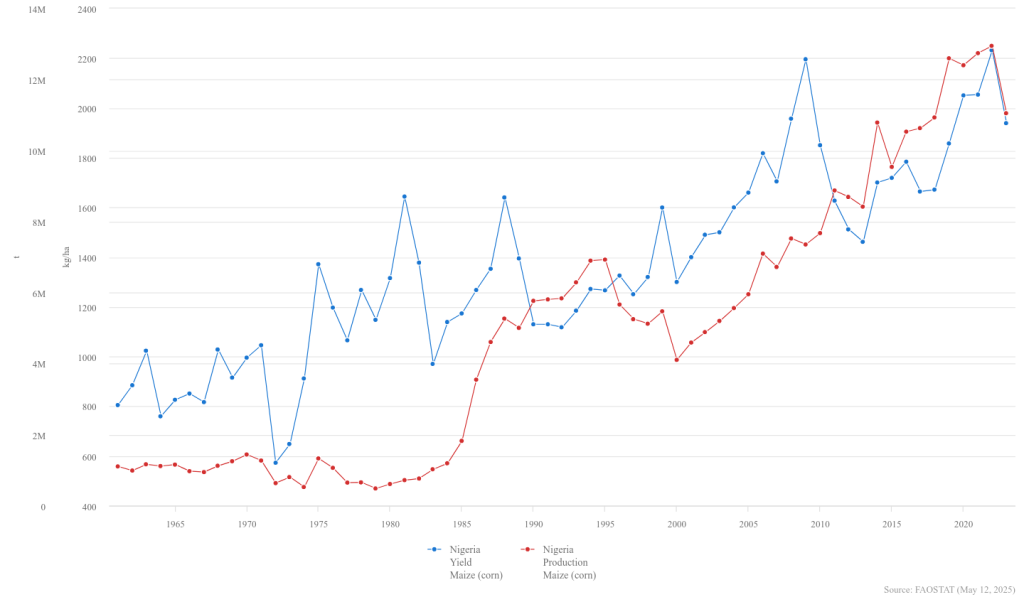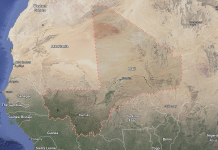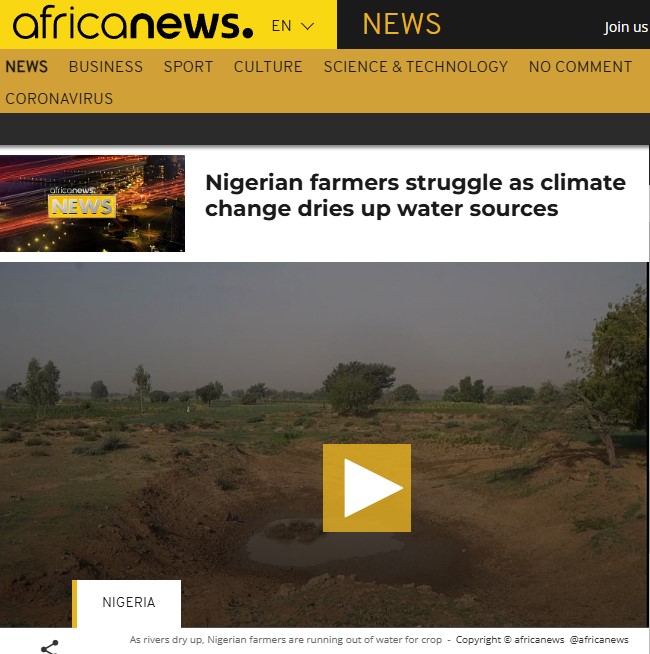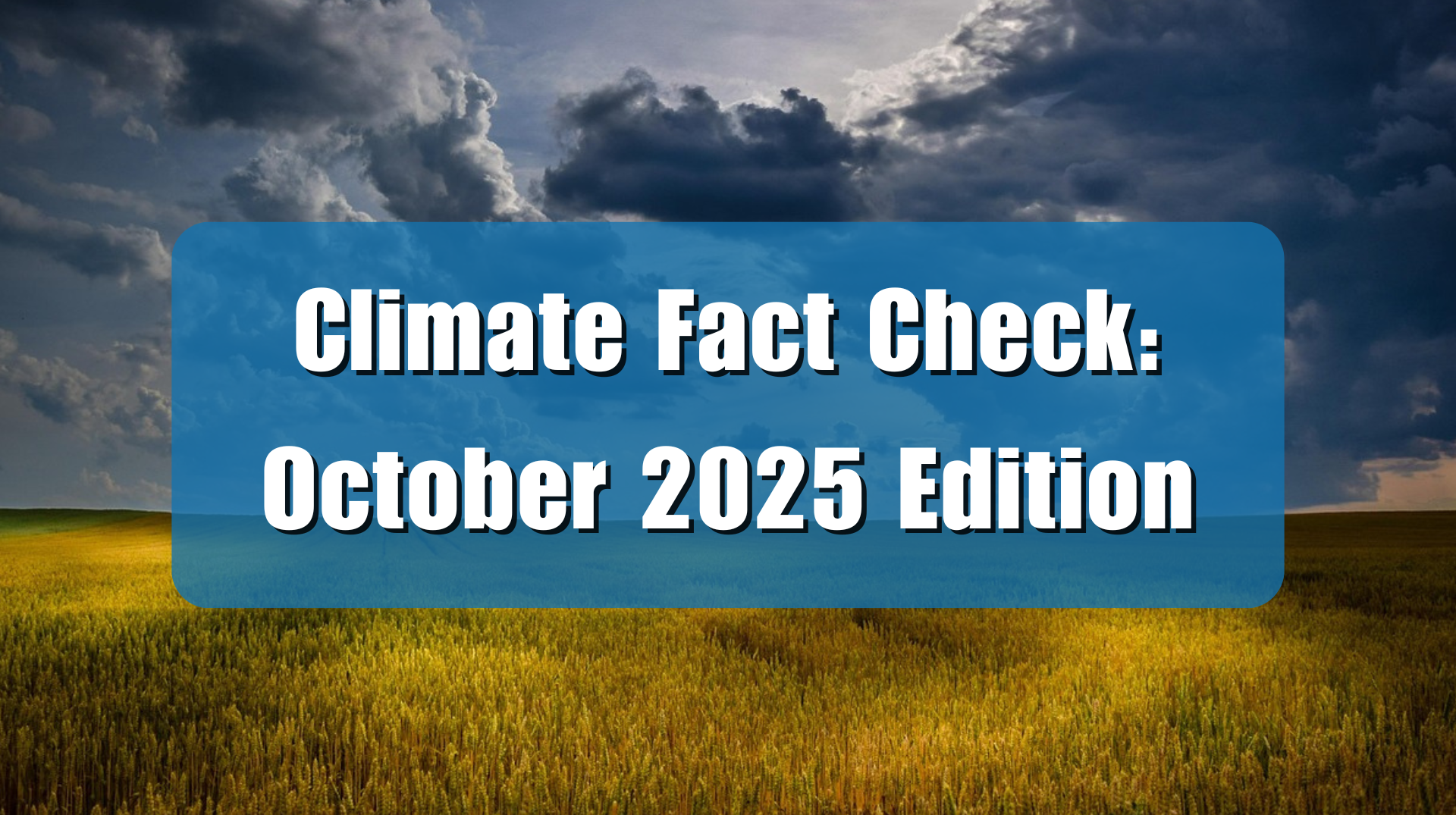AfricaNews (AN), in collaboration with the Associated Press, recently posted an article claiming that recent drought in Nigeria is due to climate change. This is unlikely to be the full story. Although data is sparse for the region, human activities are just as likely to be contributing to desertification as cycles of drought are.
The article, “Nigerian farmers struggle as climate change dries up water sources,” claims that climate change is the cause of recent drought in Nigeria, leading to crop declines. Surface water is becoming scarce during the dry seasons, so some farmers are forced to dig wells to irrigate their crops. AN writes that “[r]iverbeds have started to run dry,” and so the blame “is pointed firmly at climate change, with conservationists warning that food could become scarce if measures are not urgently put in place to help the farmers irrigate their land.”
While it is true that Nigeria has been suffering from extended drought, particularly in the northern part of the country, it is not clear that this is all or even mostly because of any human-caused climate change due to changing temperatures. Natural drought, combined with human error in land and water management, seems to be the more likely culprit.
According to the article, over 80 percent of Nigeria’s farmers are smallholder farmers, and they make up 90 percent of the nation’s crop production. The article points at maize (corn) as a sample crop that is suffering due to the water shortage, it “saw a decline in cultivated land from 6.2 million hectares in 2021 to 5.8 million hectares in 2022.”
Crop production data from the United Nations Food and Agriculture Organization (FAO) show that Nigeria’s corn production has been increasing over time. It actually shot upwards the most in recent decades, after remaining relatively flat through the 1980s. Between just 1990 and 2023, Nigerian corn production increased 91 percent, while yields increased 71 percent. (See figure below)

The dip in 2023 is attributed to recent drought related losses, but all crops everywhere in the world has good and bad seasons—sometimes multiple very bad seasons.
Nigeria is already a largely arid or semiarid country, and corn is a water hungry crop. More corn production necessarily means more water use. The population of Nigeria is also rocketing upwards, including and especially the number of not just humans but thirsty cattle, especially around the Lake Chad region, which AN notes has seen “dramatic” shrinkage. The lake, according to AN, shrunk 90 percent over the last few decades.
What AN neglects to mention, is that since the 1970s, the rivers that feed Lake Chad have also been dammed and diverted by other countries, causing a decrease in the amount of water that can enter the basin. AN mentions that there has been significant loss of trees in the state of Sokoto, which “contributes to rising temperatures,” but neglects to say why those trees were lost. The framing of the story makes it seem like those trees are gone due to climate related desertification, but this is not the case. These trees were cleared for rapidly expanding agriculture. The reason this is significant, is that deforestation is known to reduce precipitation and greatly reduces the ability for soil to hold moisture.
Any drought or decrease in precipitation, under these conditions, would certainly lead to widespread water shortages, especially for an increasing population. Drought has always been an issue for West Africa, and particularly for northern Nigeria, which has seen repeated devastating droughts over the last century, including in the 1910s, 1940s, 1970s, 1990s, and recent years.
Still, Nigeria’s GDP has been rising even amid all of these issues, growing at about 3 percent per year. Their economy is heavily reliant on oil exports – which ironically, climate alarmists would see destroyed to purportedly “save” Nigeria from climate change.
Nigeria’s weather conditions are unlikely to be unprecedented, but mismanagement of the land amid a booming population can quickly destabilize what resources the nation has. Climate change does not have to play a major role for water shortages to occur. AfricaNews seems to have missed the most likely direct causes of water problems in Nigeria, which are resource management related.























